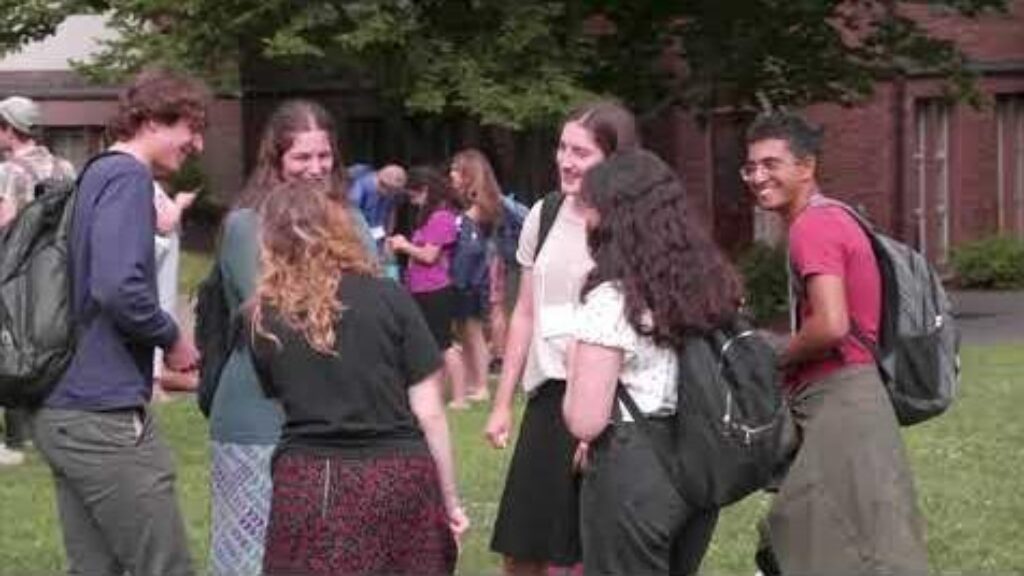Hard Times Create Strong Jews
BY RAFI UNGER
The Jewish intellectual Milton Himmelfarb made a bold prediction in the year 1996: the future of American Jewry was fewer but better Jews. This prediction evidently did not come to fruition. As of 2020, there were an estimated 7.5 million Jews in America. In 1996, there were about 5.9 million Jews living in America. Obviously, Himmelfarb was incorrect in believing there would be fewer American Jews, or at least not soon. However, there is another aspect to Himmelfarb’s prediction: that Jews would become better following 1996. This part of Himmelfarb’s prediction is also clearly mistaken.
It is impossible for present-day American Jews to be of higher quality than
the Jews before them since their experiences and success cannot compare
to the generation of Jews who rebuilt their lives in America following the Holocaust, which was an unthinkable feat. Many Jews immigrated to America immediately following the Holocaust. This generation of Jews primarily grew up low-income, living in tenements or other poorly made housing. Most Jews came over from Europe with a weak understanding of English. This generation of Jews had to pull themselves up by their bootstraps. They had to rebuild their lives in a new country following the destruction of the Holocaust.
Eventually, this generation of Jews and their children began to prosper as they started businesses or entered other high-paying professions. This becomes clear when one looks at the statistics—by the 1990s, Jews made up a quarter of Forbes Magazine’s richest Americans, and the average Jew earned 130% of a non-Jew’s salary. Thus, by the 1990s, Jews were a flourishing and comfortable people. However, following the 1990s, and Himmelfarb’s prediction, Jews stopped getting better to the extent previous generations had.
That is not to say there have not been famous Jewish intellectuals following the 1990s, or that Jews stopped prospering following 1996, because that is simply not true. However, for Jews to be better than before, they must do more than just prosper, have their share, or comprise more than their share of famous Americans and intellectuals. For Jews to become better, it is not enough to just excel in already prosperous circumstances. They must do what the Jewish immigrants did following the Holocaust: rebuild from nothing and lay the foundation for future generations. American Jews since 1996 have not done this.
There is a well-known saying attributed to Michael Hopf: “Hard times create strong men. Strong men create good times. Good times create weak men. And weak men create hard times.” By 1996, the Jews had created good times. Financially, these good times did not create weak Jews. However, American Jewry is now slowly falling apart.
The polarization between the left and right politically in America has not stopped at the Jews. The less religious, and usually more politically liberal, one is, the less likely they are to communicate with their more religious
and politically conservative brethren. This polarization leads to many disagreements between Jews of different political opinions and backgrounds. In this way, weak times have come upon us.
It is clear that Himmelfarb’s hypothesis was not only incorrect, but rather inherently flawed. Himmelfarb assumed that less Jews meant better Jews. Since 1996, American Jews have been dealt a good hand: many grew up comfortable in a great environment. When Jews first came to America, this was not the case. Times can always get tough, even now, and if these Jews who have had mostly easy, comfortable lives ever have to deal with a harsh environment, it is fair to wonder how they will be able to deal with these new circumstances, or if they will be able to at all.
Everybody, including Jews, is a product of their surrounding environment. Nowadays, society is polarized and times could get very tough, including for the Jews. Perhaps then we will see these better Jews that Himmelfarb once predicted would emerge. Hopefully these better Jews can create good times once again.
Mr. Rafi Unger is a rising junior at Manhattan Talmudic Academy. He resides in Riverdale, New York.
Suggested Reading

A New Viewpoint on Diversity
Often, it seems that the people who talk about diversity never visit diverse communities. People seem to think that diversity is based on how one looks. True diversity is not about how someone looks, but how they act.

My Real Internal Conflict is Not One of Clashing Interests
When do my Jewish interests and American interests conflict? After much careful internal deliberation, I have concluded that they do not.

Regaining our Power Through Knowledge: The Solution to Rising Anti-Semitism on Campus
An emotional connection to our Judaism cannot be our only solace. Knowledge is the solution to the problem Jewish students face today.

From the Beginning to the End
BY ARI UNGER It doesn’t always make senseBut it doesn’t always have toI guess that’s the beautyOf lasting so longOf having little holes in your storySo it sounds like a…